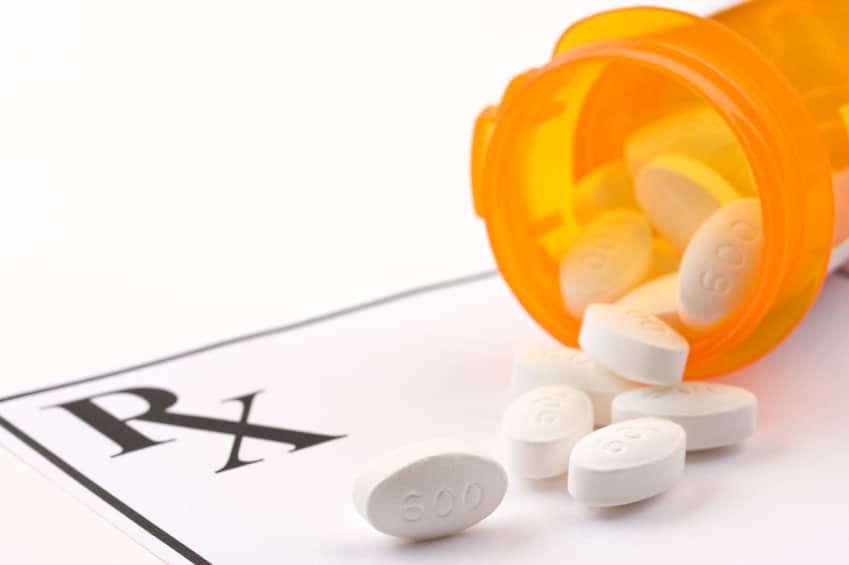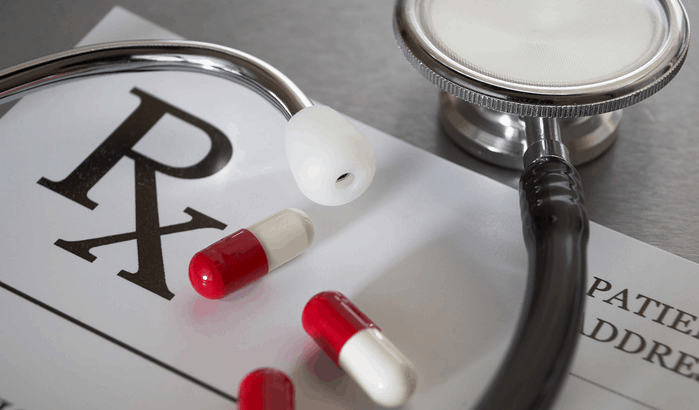Levaquin (LEV-ə-kwən)
Levaquin (levofloxacin) is a fluoroquinolone antibiotic that can be used for the treatment of acute bacterial or chronic bacterial prostatitis.
FDA Black Box Warnings: Levaquin
Levaquin and other fluoroquinolones contain a black box warning such as the following:
WARNING: Fluoroquinolones, including LEVAQUIN, are associated with an increased risk of tendinitis and tendon rupture in all ages. This risk is further increased in older patients usually over 60 years of age, in patients taking corticosteroid drugs, and in patients with kidney, heart or lung transplants.
Fluoroquinolones, including LEVAQUIN, may exacerbate muscle weakness in persons with myasthenia gravis. Avoid AVELOX in patients with known history of myasthenia gravis.
Black box warnings are used by the U.S. Food and Drug Administration (FDA) to communicate important prescribing information to you and your doctor. The FDA considers this essential information to know before taking Levaquin. These black box warnings for Levaquin and other fluoroquinolone antibiotics include an increased risk of:
- Tendinitis—Tendons are a thick, fibrous tissue that connects muscle to bone. Inflammation of this thick chord can lead to pain. Chronic tendinitis increases risk of tendon rupture.
- Tendon rupture—Separation or tearing away of the tendon from the bone
- Worsening of myasthenia gravis, a neuromuscular disease characterized by muscle weakness
There has also been a recent safety warning for fluoroquinolone antibiotics related to peripheral neuropathy. This is nerve damage that may or may not go away after your stop taking the medication.
Tendinitis and Tendon Rupture
Tendinitis and tendon rupture can occur within 48 hours of starting Levaquin treatment, but may also occur for several months. As a result, Levaquin should be stopped immediately and you should see a doctor immediately if you:
- Feel or hear a pop in a tendon area
- Bruise in a tendon area after an injury
- Experience severe pain or are not able to bear weight on an affected area
Additionally, immediately stop exercising and avoid using the affected limb where you are experiencing symptoms. Call your doctor so that you can be prescribed a different antibiotic.
Both tendonitis and tendon rupture are more common in patients over the age of 60, but they can occur at any age. Transplant recipients are considered at a higher risk. Additionally, you need to let you doctor know if you are on any steroid medications that also increase risk of tendinitis such as Decadron/Dexpak (dexamethasone), Medrol (methylprednisolone), or prednisone.
Worsening of Myasthenia Gravis
Levaquin may worsen myasthenia gravis, a neuromuscular disease characterized by muscle weakness. Make sure to tell you doctor if you have this condition and make sure that you do not let a doctor prescribe you a fluoroquinolone antibiotic. If you experience muscle weakness after taking Levaquin, seek medical care immediately.
Nerve Damage
Peripheral neuropathy, or nerve damage, may occur within the first few days of starting Levaquin or other fluoroquinolone antibiotic for prostatitis. This side effect can occur with either intravenous or oral formulations.
Patients describe symptoms such as a pain, burning, tingling or numbness. Additionally, a patient may complain of altered sensation to light touch, pain, or temperature, or altered sense of body position. The symptoms most commonly occur in the arms or legs, but any body area may be affected. The neuropathy generally resolves if stopped, but can result in permanent damage if it is not.
Why Is Levaquin Prescribed for Prostatitis?
Levaquin is an antibiotic that contains the active ingredient levofloxacin. It is used to treat common infections causing prostatitis such as:
- Escherichia coli
- Proteus mirabils
- Other Enterobacteriaceae such as Klebsiella pneumonia, Enterobacter cloacae, and Serratia marcesens
- Pseudomonas aeruginosa
How Should Levaquin Be Used?
Levaquin comes in the following formulations:
- Tablet—Tablets are usually taken once per day
- Intraveneous
- Liquid—Liquid is also taken once per day and should be taken either one hour before or two hours after eating.
There are no guidelines for an exact duration of therapy. If you are sicker initially or require hospitalization, your doctor will likely treat you for closer to six weeks. There are no special storage considerations as long as it is stored between 59°F and 86°F.
Other Uses for Levaquin
In addition to taking Levaquin for prostatitis, Levaquin is also used to treat the following conditions:
- Respiratory infections like pneumonia
- Chronic obstructive pulmonary disease (COPD) exacerbations
- Endocarditis or infections of heart valves
- Tuberculosis
- Plague
- Traveler’s diarrhea
- Certain sexually transmitted diseases
- Urinary tract infections or pyelonephritis (kidney infection)
- Anthrax
Do I Need to Follow Special Precautions?
Patients with an allergy or other previous reactions to Levaquin or other fluoroquinolone drugs should not take Levaquin. If you have ever had a reaction to another fluoroquinolone drug, you need to let your doctor know. Examples of other fluoroquinolone include:
Make sure that you tell your doctor about any other medications you may be taking. Levaquin may not be a good choice for the treatment of prostatitis if you are taking other drugs such as:
- Antacids, which may decrease efficacy of Levaquin
- Multivitamins, which may decrease efficacy of Levaquin
- Nonseroidal anti-inflammatory drugs (NSAIDs), which increase Levaquin levels and lower seizure threshold
- Sulfonylurea, which may increase hypoglycemia
- Coumadin (warfarin) which may increase bleeding risk
Do I Need to Follow a Special Diet When Taking Levaquin?
Drink plenty of fluids.
What If I Forget a Dose?
If you forget a dose when taking Levaquin for prostatitis, take the missed dose as soon as possible. If you are close to the next dose do not double the dose, and continue on the regular dosing schedule until the entire antibiotic is gone.
Are There Side Effects When Taking Levaquin for Prostatitis?
All drugs have side effects. You should tell your doctor if any of the following side effects last more than a couple of days:
- Nausea
- Vomiting
- Diarrhea
- Stomach pain
- Constipation
- Heartburn
- Headache
- Vaginal itching and/or discharge
If you experience any of the following when taking Levaquin for prostatitis, stop Levaquin immediately and talk with your doctor:
- Severe diarrhea (watery or bloody stools) that may occur with or without fever and stomach cramps (may occur up to two months or more after your treatment)
- Skin rash or blisters
- Hives
- Tingling or swelling of the face or neck
- Nerve pain
- Difficulty breathing
- Hoarseness or feeling like your throat is swelling
- Fainting
- Rapid, irregular, or pounding heartbeat
- Chest pain
- Jaundice
- Tendon swelling or rupture
- Tendonitis
Does Levaquin Have Special Storage Instructions?
No. Levaquin formulations should not be stored in extremes of heat or cold and do fine at room temperature.
What Do I Do in the Case of an Accidental Overdose?
If you take too many Levaquin pills call your local poison control center. If someone has taken an overdose and is not breathing or responding, call 911.
What Else Should I Know About Levaquin for Prostatitis?
Make sure that you follow any instructions given to you by your doctor. Do not share your antibiotics and complete the entire course even if you feel dramatically better.







